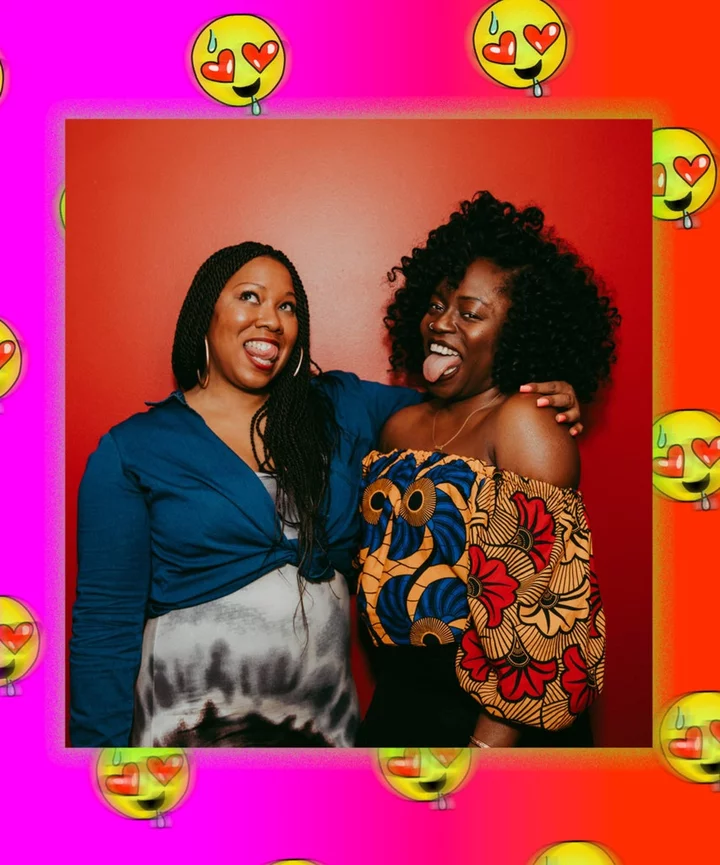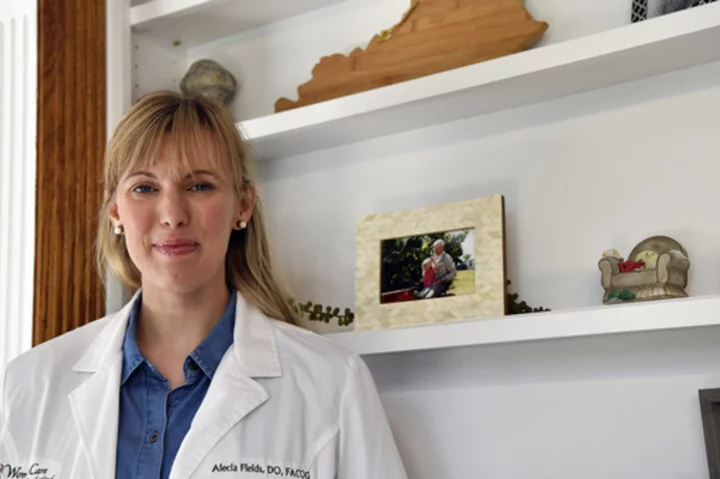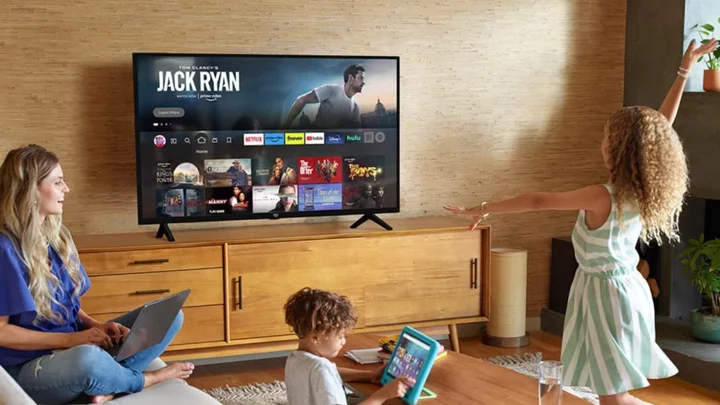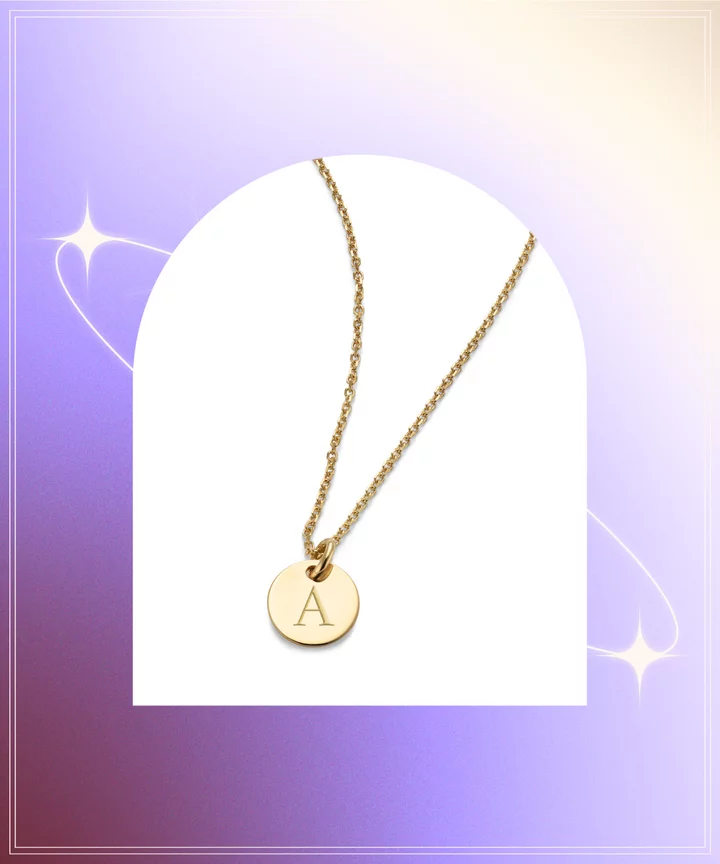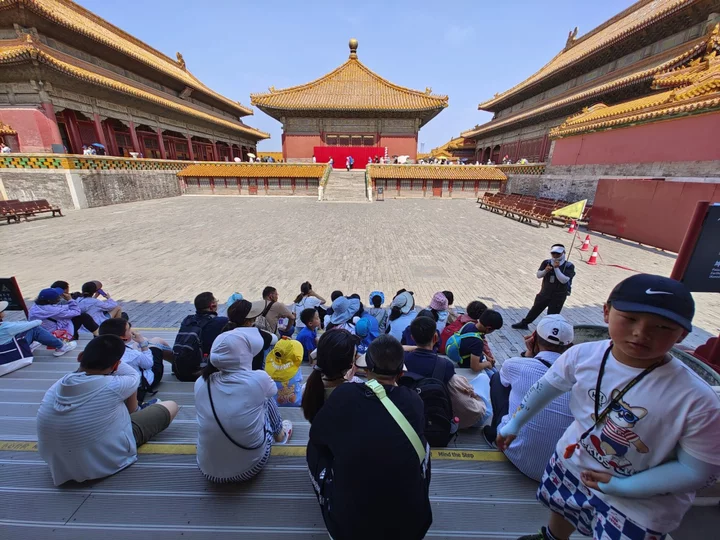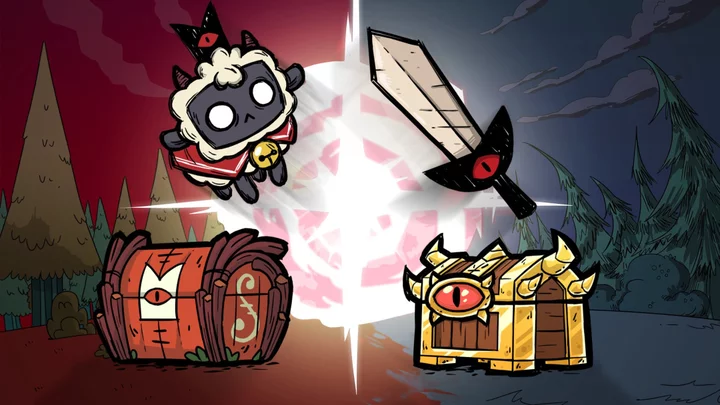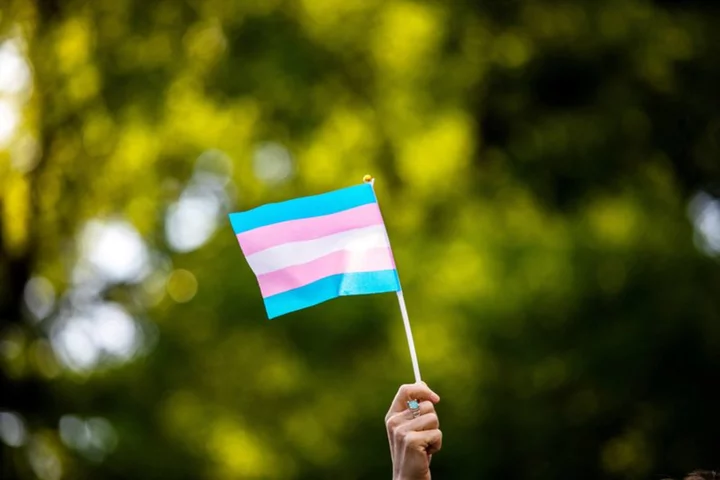Naturally, the first thing you want to do when you develop a new all-consuming crush is tell a friend. From whispered confessions on the phone to passing notes in class, communing over shared desire is a girlhood rite of passage. But then there’s the lust you’re not supposed to share out loud. The deep, dirty, grownup, horny kind that’s supposedly reserved for boys and bragging locker room talk, or the tattered pages of the erotic novel you stole from your auntie’s bookshelf in secret.
When it comes to thirsting proudly on main, it wasn’t until Tumblr then Twitter that publicly and collectively crushing on celebrities — in the thirstiest ways — was not only normalized, but encouraged, and embraced. And, as always, Black women did it best. Leading the thirst revolution were two writers, Bim Adewunmi (now a playwright and producer) and Nichole Perkins (author of Sometimes I Trip On How Happy We Could Be), whose tweets could make you blush and whose hit podcast Thirst Aid Kit felt like a kiki with your bestie as much as a dissertation on desire and its societal implications. “Why do we desire who we desire? At a time when men are Not Doing Great, Bim and Nichole want to keep asking questions about Hollywood inclusion and opportunity, through illuminating and hilarious conversations,” the podcast’s summary reads.
In a post-#MeToo cultural landscape, when disgruntled commenters were lamenting that consent wasn’t sexy and baselessly complaining that “you can’t even flirt anymore!” Thirst Aid Kit became a safe space for lusting out loud… respectfully. ELLE called it a “pure escapist romp—with a dash of sexual politics.” Its politics were simple: women’s desires matter, and performing thirst isn’t immature or frivolous; it’s healthy and human. Who we thirst after and why can also tell us a lot about ourselves and our culture. Plus, a little delusion never hurt anybody. As Black women are often relegated to the sidelines in conversations about lust and adoration, Thirst Aid Kit made us the main characters.
Adewunmi and Perkins are not my friends (yet). But for 96 episodes of Thirst Aid Kit (which ran from 2017-2020), it felt like they were. Whether they were sermonizing on the sex appeal of a strong nose or the alluring benefits of fictional beaus like Dwayne Wayne and Pacey Witter, or asking Chris Evans about his beard, Adewunmi and Perkins always found a way to articulate our deepest fantasies with wit, charm, and spicy humor. Every time the internet claims a new boyfriend (like Jeremy Allen White, Tyler James Williams, or Pedro Pascal), I wish they were still hopping on their mics to break down the specifics of their appeal. They get that a lot, the duo tells Unbothered over Zoom. Thirst Buckets (a nickname for fans of the show) are still clamoring for their opinions on the latest online-approved lust objects and their thoughts on the current state of thirst. For example, what to do when we all finally agree on a man, only for him to disappoint us with his alleged problematic behavior (see: Jonathan Majors). Here, Adewunmi and Perkins reunite to discuss all of the above, who they’re crushing on right now, and, in this economy, if it’s still safe to thirst after celebrities.
When you created Thirst Aid Kit, you talked about wanting to cement the fact that desire is important and to combat the idea that thirst should be shameful. So what was it about thirst that you wanted to explore?
Bim Adewunmi: Nichole and I met on the Internet, and I think that really allowed us to bring forth very frank conversation. The idea of the podcast came so organically, so quickly, because we both understood there was a dearth in terms of popular culture being taken seriously, especially through the avenue of desire, especially from two Black women. We were super aware that we are two straight Black women, but it felt like the church could be broad enough to include some other perspectives while also understanding which perspectives were valid and often missing. I talk a lot about fanfic and how so much fanfic is [created] as a correction from the people who love a thing. Why aren’t you doing the thing this way? It’s quite obvious. I think [Thirst Aid Kit] was an ode to that same feeling, and it’s no surprise that therefore there are elements of fanfic in the show because we are seeking an examination and correction [of desire].
When women express desire, it is very much focused on the self… We are like, ‘I want to wash dishes with this man.” Whereas, an Internet comment from a man is like, ‘I want to suck the fart out of you.’ Relax!
nichole perkinsNichole Perkins: Then I’m coming from this love of romance novels, which is something else that’s been treated as this shameful secret or something you’re not supposed to talk about outside of your home or outside of your reading nook—especially for women. And so it’s very important for people, but especially women, especially Black women, to be able to say, I like this thing and I want more of it without feeling embarrassed, without feeling like they are betraying themselves. When it comes to desire, we’re told that what we’re asking for is too much, not just that it’s impolite or unexpressed. You’re not supposed to have a man who can do all. Or this or a partner who can do all of these things, you have to settle. So when you get that from your book boyfriends or girlfriends—these fictional characters—it’s seen as ‘that’s ridiculous’ or that’s the only place that you’re going to get that because it’s fiction. But these things can happen in real life.
Also, it was important for us as Black women to shake up the expectations of desire. Women are very, very funny when it comes to performing desire. I think when women express desire or femmes express desire, it is very much focused on the self. Whereas a lot of times when men express desire, it is an action being done against somebody, against their will or without their expressed consent.
Straight men do not thirst in the same way.
Nichole: No. Very early on some of the criticism that we got was, “If a man was doing this, this would be shut down. Men would not be allowed to do this.” And [our response was] “Well, because men would do it in a terrible way and they would do it in a really uncomfortable, disgusting way.” If you look at the way men comment on the Internet, it’s really gross sometimes. And we are just like, “I want to wash dishes with this man and see him in my house with a towel slung over his shoulder.” Whereas, you know, an Internet comment from a man is like, “I want to suck the fart out of you.” [laughs]. Can you relax? Relax.
Bim: In addition to that, even if women thirst “correctly,” I think it’s impossible for us to do a straight flip and say, “What if a man did it?” because of the world we live in. In the society we live in, men have done some really shitty things that complicate this conversation. They can’t do fucking good podcasts as a result of old behavior. I’m not saying all men do this, but historically the docket is pretty full. I think people are always very quick to say, “What if this other gender did it?” Well, they have been doing versions of it that have not been good. Like Nichole said, what I’m proudest of is how much nuance we put into every single episode. We set out to examine as equals that yes, this person is hot, but why are they hot and how are they complicating their hotness? How are they horribly simplifying their hotness? Many of us have these conversations in our own minds and our own bodies, but I love that we were able to put it into a format that was specific and thoughtful.
It feels like there are different eras of thirst. There was the heartthrob era of the 80s and 90s, the boy band era of the late ‘90s and 2000s. In the 2010s, it was the era of the Internet Boyfriend, where we’d all be obsessed with someone then move onto the next. Now, the vibe is hesitant. It’s almost like, “Is this man going to end up disappointing us?” How have you seen thirst change since the podcast ended?
Nichole: I have definitely noticed a change in the way that people approach thirst, and there is some caution. I don’t want to say desperation, but there is this feeling like, “Can we just go back to when it’s okay to be horny on main?” It feels there is this fear of intimacy and vulnerability, which might be as a result of isolating for so long and feeling like we cannot trust our fellow humans as we go about the day. There is a lot of mistrust. Maybe people are trying to get back to the thirsty days, but it’s still really hard because then you have a news cycle where a celebrity’s [Keke Palmer] child’s father is telling her to stop wearing what she’s wearing. Another celebrity [Jonah Hill] has told his ex, “Don’t do this, don’t talk to these people. Don’t wear this. Don’t do the thing that got my attention anymore.” When you see all these things, it’s like, who are we supposed to trust?
And TikTok has changed the nature of thirst because so many people need an audience now. People on TikTok are also performing getting mad, recording how they look when they’re sad and how they look when they’re crying. So all of these things — this lack of trust, these terrible stories of men being misbehaving, gaslighting — is rising to the top of our timelines, and I think it’s affecting the way that we talk about thirst.
Bim: We entered into the scene at a point when people were excited to fancy people. There was something pure and good [about thirst] following so many reports of bad men doing bad things. I think coming in after #MeToo, people were having very complex conversations with themselves and with their friends. People were asking, “What am I allowed to like and how safe is it to be out there?” I just want to go to the movies, enjoy stuff, and not think about it. I don’t want to have to think about, “Hey, did this guy beat his girlfriend this year? You know, this guy is having a hot career moment. Uh oh, what’s about to happen next?”
We set out to examine that, yes, this person is hot, but why are they hot and how are they complicating their hotness? How are they horribly simplifying their hotness?
bim adewunmiI always joke that Michael B. Jordan is my future second husband. I would be devastated if anything bad came out about him. In a weird parasocial way, it would be heartbreaking. I know for a lot of people that the Jonathan Majors news was such a heartbreak and a reminder of the ways in which men ain’t shit and how they actively harm women (allegedly). How do we navigate that aspect of thirst, the knowledge that, ‘this person is probably going to let me down,’ and then what?
Nichole: When we did our episode about Michael B. Jordan, we talked about early in his career, he had a little fumble where he said something that Black women took offense to. I can’t remember exactly what it was. But he addressed it fairly head on and did his Black media press tour and has never forgotten Black media since then. So he redeemed himself in such a way that that is not something that immediately pops up when people think about Michael B. Jordan’s trajectory to stardom. I feel like that is a really good example of how you can start out as a celebrity, maybe have a couple of stumbles, but you correct yourself and you are able to move in such a way that no one holds that against you, or very few people will hold it against you. There was very much a human element in his response, and in his appearances after that. So we have this redemption story.
Even after his breakup with Lori Harvey, we saw what we interpreted as him looking sad, looking a little hurt at the basketball game. We have him showing that he has feelings and being vulnerable. So we can continue to thirst after him safely. But in a situation like Jonathan Majors, with his accusations and everything that is going on with him, he has not responded in a way that makes most of the people who were lusting after him want to forgive him or want to say, “Let’s give him a chance to redeem himself.” And there could be many different reasons for that. It can get challenging and complicated.
Could you do Thirst Aid Kit in the same way today?
Nichole: When we started Thirst Aid Kit and the #MeToo movement was so strong and so prevalent at the time. We had a lot of people email us or send us messages that said, “You made me feel like I could safely desire something again.” They were just learning how to be okay with their sexuality again. For people who have been assaulted or people who have been abused, they would let us know that the show and the things that we were doing gave them a safe space so that they did not feel guilty about still being attracted to men. They did not feel guilty for still being sexual people after something terrible had happened to them. If we started the show again on a weekly basis, I don’t know necessarily that anybody would still be able to respond to us in that same kind of way. Not to say that we would change, but again, I just think so much has happened since we went off the air three years ago. It’s hard for me to say what the response would be if we came back.
Bim: I’ve been off Twitter for a while. But we still have access to the Thirst Aid Kit account and people will @ us and say, “Man, I wish you were still on the air.” This was especially true in the months when it felt like Jonathan Majors was really blowing up. And, you know, we still get the occasional Tumblr ask like, “Hey guys, are you done? I would give a lot to hear you guys talk about X, Y, Z person.” It’s nice that we have this kind of incredible core of people who really are loyal to the brand and really like us and how we handle things. But like Nichole says, there have been new complexifying factors in the meantime. And I think the pandemic had a lot to do with that.
We’re also in this “puriteen” moment where the next generation supposedly wants less sex on screen and less kissing, which is crazy to me because I determine whether or not to watch something by asking, “Ok, but is there kissing?” So what do you make of this shift?
Bim: There is a wave of people who want to see less sex on screen. It’s interesting to look at the landscape that we arrived in, the one that we left, and what it is now. I think we are now in a moment that’s not quite anti-sex but people are in search of authenticity, even in their fake stuff. Even in fiction, they want to feel that something there is real. I think a lot of the backlash to sex in movies and calling it exploitative. Sure, some of that is people reading theory wrong, but I think some of that is people just wanting stuff to mean something.
I think we are now in a moment that’s not quite anti-sex but people are in search of authenticity, even in their fake stuff. Even in fiction, they want to feel that something there is real.
bim adewunmiLike Nichole alluded to, there’s a pushback against the fakery of social media or the fact that you have to have social media clout or celebrity in order to “sell a movie.” People say this all the time: “Oh, my God, bring back chemistry in movies, please.” Just because these two people are huge on TikTok doesn’t mean that when they kiss I’m going to feel something. One of the things that we also spoke about [on Thirst Aid Kit] was exploring what chemistry looks like and what it feels like. And I think a lot of people haven’t had that in recent times, so they’re just kind of like, “You know what? Burn the whole thing! Who cares?” And that’s understandable. To me, my defining characteristic as a teenager also was, ‘are they going to kiss?’ I think Abbott Elementary’s Gregory and Janine are really scratching an itch for people because it’s like, ‘Oh, this is what chemistry is. Their chemistry is such a sweet, wholesome, genuinely hot thing. Whenever I watch them, I squeal. So there is still an appetite for that. But I think we are all in a moment of deep reflection and reaction. It just has everybody on edge. I don’t judge anyone for it, but I am saddened by it. I don’t know what’s going to pull us out of this moment but I’m interested to see.
Nichole: I think a lot of people are more aware of the exploitation that has happened in Hollywood with with MeToo and they look up these sex scenes from past movies and find out, oh, this woman actually wasn’t aware that this was going to happen. And, if I like this scene, am I saying I like an assault? Once we learn the behind the scenes stuff, are we accidentally approving something that’s wrong? I think they’re trying to be overly cautious and they end up freezing in place. I feel like some people want to call them prudes but I think that’s a little too judgmental. It seems like they’re trying to do the right thing. It’s hard for them. But Gen-Z still likes to be desired. And they still like to thirst. And they still like to express. “Oh, my God, I love this person.” It’s going to turn around again because people are human beings and desire and sexuality is just a part of our lives.
Who would be your dream thirst subjects or guests on the show now?
Nichole: When Pedro Pascal started to blow up, we were off the air at that point, and so a lot of people were reaching out to us. I missed Thirst Aid Kit myself because I would see people asking him on the red carpet to “say this” or “read this tweet” and it was clearly something that was very inappropriate or outlandish. And he’s on a Disney red carpet. It’s like, please don’t do that. There is a way to do thirst. There’s a way to ask somebody about thirst that is not this. Sorry to toot our own horns, but Bim and I would have handled Pedro much more elegantly and with better nuance than what we saw. It was almost embarrassing to see these people approaching him and just be like, “Call yourself Daddy.” No, no.
Bim: No! That’s not how it goes! [laughs]. Nichole and I did multiple Thirst Aid Kit episodes via WhatsApp. We’d say, “And here’s what you ask. And here’s how you do this.” Because everything I’m seeing is making my teeth itch. If anything was going to make me start the podcast again tomorrow, it would be just so that Nichole and I could write ten excellent interview questions and take it to the thirst object because I desperately want to talk to Pedro Pascal. His arc is so interesting. He is being treated like a young Hollywood ingénue. This is the treatment we give to women. He was weird and incredible and fantastic. And at the core of it also is a person who you see juggling it in real time. I had so many questions for him. It is my dream still to interview him and to have him contextualize his own star ascending. I just want to hear from him. I want to put questions to him and see where he’s landed on his own idea of his celebrity, and his own lust worthiness. That was always very interesting to me. And I felt so sad that we weren’t able to.
If you don’t like this kind of look, that is okay. We are not telling you who or what is beautiful or who or what is worthy of your desire. We’re just asking you to kind of examine that a little bit more closely.
nichole perkinsNichole: One of my dream thirst interviews is Yahya Abdul-Mateen II. We did an episode on him in our last season. He responded on Twitter to it and he seemed game and we were trying to make it happen. But then obviously the pandemic happened. But I have noticed that he has pulled back from the spotlight a little bit even as he continues to work.
I would love to talk to him — similar to what Bim is saying – about his trajectory. For a while he was giving us what we wanted. He was responding to thirsty tweets and putting out thirst traps And then he stepped away. All of a sudden, he cleared a lot of those pictures off his grid. I don’t know if that’s because he’s in a relationship now, if that plays part of it or if maybe something happened, like an interaction between him and a fan. I don’t know. But I would love to hear his thoughts on what has changed about celebrity for him and what his boundaries are now. And what does it mean to be a tall, dark skinned Black man that people are lusting after. All the things that people are saying about him, how does that affect him and his and his craft as well? And that’s another thing that bothered me about those Pedro Pascal thirst interviews. Bim and I were very good at actually talking to these people about their crafts and their talents, then also giving our audience what they wanted by asking them those silly thirst questions.
What I loved is that you went with a very holistic approach to your thirst object. Not just the physical. What makes a good thirst object?
Nichole: There was that tweet by writer Ashley Reese where she asked who was hotter: young Al Pacino or young Robert De Niro? It was neck and neck. And there was some film bro, who, and I’m paraphrasing strongly, but he was like, “How could anybody find Robert De Niro attractive? Because he never played any romantic roles. He said all of his roles were terrible people or whatever when he was young.” And it’s just like, “Okay, and??”
Bim: Someone replied and was like, “Stay out of women’s business.”
Nichole: If Bim and I had the chance to interview Robert De Niro, we would ask him something like, “Did you pick these roles that were so distant from a sexual romantic being because you know that you look good and you wanted to create some distance, you wanted to prove yourself in Hollywood as an actor and not just a pretty face?” That’s something that we would ask him crafted around the idea of thirst that’s not just, “You’re cute.”
Bim: We would ask something similar of Al Pacino which is, “Do you know that your sad eyes lend a certain something to your roles?” I understood both counts but for what it’s worth, it’s Robert De Niro all the way.
Nichole: Same.
Yes!
Bim: Someone was like, “Sorry, guys, I’m into boys who look sad.” And in that case, Al Pacino is going to do it every time. His face is the saddest face in all the land. But the pertinent issue at hand is, which one would you like to have in your kitchen eating dessert with you? [laughs]. Who’s thinking about Cape Fear? Not me! It’s so weird that people who don’t understand the thing are the ones who are the loudest.
Nichole: To go back to someone like Jonathan Majors, I would have loved to have talked to him before we knew all the things that we allegedly know now—because there was so much talk about. He is not a “traditionally handsome man,” whatever that means, right? He’s got a very strong nose and his features are all very strong. I think he looked beautiful. He was a very good looking man and I was physically attracted to him. I think that would have been a really interesting episode to talk about. What do we expect beauty to look like? What do we expect Black men to look like? Kathleen, you mentioned that people are wondering, “Is it okay if I like this person?” We had so many people who would ask us, “is it okay if I like this guy? He’s not that blond-haired and blue eyed stereotypical heartthrob. Is it okay if I like him?” We are not prescriptive. We are not telling you these are the types of people that you are supposed to find attractive. We are just saying these are possible reasons why you find this person attractive. And if that continues into your personal life, that’s fine. Or if you don’t like this kind of look, that is okay. We are not telling you who or what is beautiful or who or what is worthy of your desire. We’re just asking you to kind of examine that a little bit more closely.
Who are you both thirsting after right now?
Nichole: Yahya Abdul-Mateen II, Jeremy Allen White, and Hozier. Those are my three. I love those. I want to interview Hozier so bad. I lust after him sometimes, but also I just genuinely love his music. I think he is incredibly talented. I love his songwriting skills. He is physically my idea. Any man with a lot of hair and a good beard and a great voice. That’s what I want in my life. I love Hozier so, so, so much.
Bim: My roster is a little bit dry. Just for the sake of an old school fancy, seeing people realize that Ryan Gosling is funny has been interesting. Do your Googles! And it’s like, “yes, lean in but also step the fuck back away from my man!” [laughs].
And I will say that Jeremy Allen White from The Bear is peaking my fancy as well. And this is complicated, right? Because he just split from his wife amid allegations about how he’s treating her and his child, or whatever. So that is minus a little bit for me. But I watched two episodes of The Bear yesterday, and I walked away like, ‘100% I’m in.’ I felt like I had signed a contract. I’m like, we’re going to see this through, my boy. I don’t know where the fantasy is going to end, but right now I’m enjoying very much turning on the TV and feeling the feelings. After watching Carmy have a quiet moment in a quiet kitchen with Sidney, I’m like, ‘If you don’t mush your faces together right now, I’m going to fight!’ I want to be rewarded with a hot situation because these two people deserve it. [White’s] performance is fantastic, of course. It’s just somebody who is really just throwing their whole being into a character and making it so that people across all genres are like, “I want to watch this show, I want to be in this kitchen, I want to see this guy.” I fancied him a little bit during Shameless. But then seeing him in The Bear, I’m like, yep I was right. I invested early and I’m really reaping the rewards right now. I felt like a pretty strong investor. I should take this skill to the stock market [laughs]. I think I have a skill.
This interview has been edited for clarity.
Unbothered is delving into the freedom and fantasy of desire with Thirst Week. We’re unpacking lust in all its forms, sliding into DMs, and revisiting the nostalgia of childhood crushes.

